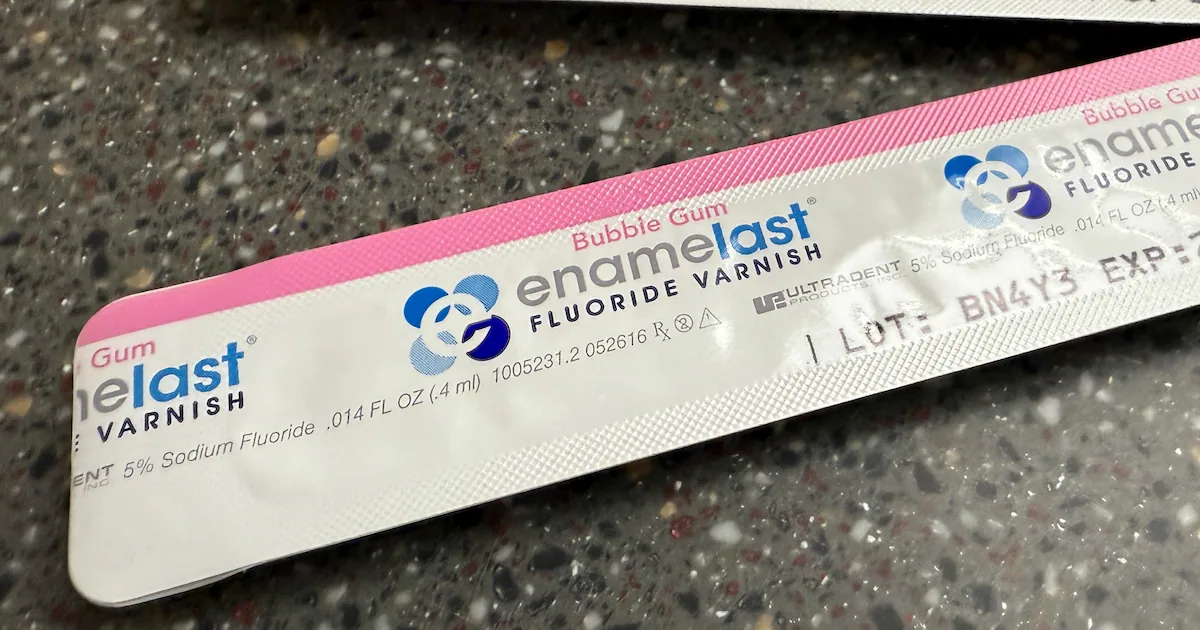Copyright Anchorage Daily News

Most children should not receive prescription fluoride, Food and Drug Administration officials said Friday as they announced measures to restrict sales of the cavity-fighting drug. The agency said children under 3 and older children not at high risk for tooth decay should avoid ingestible fluoride, which is often sold as tablets or drops. It sent letters to manufacturers warning them not to market the products to such children. Fluoride tablets are often prescribed to children who live in communities that do not put the tooth-strengthening mineral in its water supply. But Health Secretary Robert F. Kennedy Jr. has led the Trump administration’s efforts to crack down on fluoride, including revisiting the decades-old recommendation from the Centers for Disease Control and Prevention to fluoridate water. The Trump administration’s Make America Healthy Again Commission strategy report, which was released in September, called on the FDA to take action against such products. To justify the actions, the agency released a scientific evaluation concluding fluoride should not be routinely prescribed because of the known risks of staining, emerging evidence of neurocognitive and gastrointestinal harm and limited benefits for baby teeth. The review did conclude that some children may benefit if they do not receive adequate fluoride through water or diet. “This Halloween, the FDA is driving a stake through the heart of outdated science and protecting our kids from the risks associated with ingestible fluoride,” Kennedy said in a statement. The American Dental Association recommends prescription fluoride to children ages six months and older who are considered high risk for tooth decay and have little fluoride in their drinking water. Scott Tomar, a spokesman for the ADA on community water fluoridation, said the FDA recommendations were not too different then the association’s guidance. In May, the FDA said it was seeking to remove prescription fluoride for children from the market, igniting fears among supporters of the products. But the agency did not go that far. “Ultimately the report that came out from the FDA, I think was certainly a far more measured and thoughtful approach than what was suggested in that initial press release,” said Tomar, who is a professor and associate dean at University of Illinois Chicago College of Dentistry. The FDA report still reiterated a host of health concerns about fluoride that some dental health experts have described as overblown. “There are better ways to protect children’s teeth than taking unapproved ingestible fluoride, which is now recognized to alter the gut microbiome. The microbiome is increasingly recognized to be central to a child’s health and development,” said FDA Commissioner Marty Makary. However, the scientific report the FDA released noted the potential associations between fluoride exposure and the gut microbiome were unclear. As of 2022, more than 70% of Americans on public water systems received fluoridated water. But that share is shrinking as communities rebel against the public health practice. Utah and Florida earlier this year became the first states to ban the fluoridation of drinking water. Stuart Cooper, the executive director of Fluoride Action Network, praised the FDA’s move even as his anti-fluoride advocacy group is seeking to further crackdown on the tablets and drops. “We don’t feel like they should be on the market and available,” he said. “However, is this a step in the right direction? Of course. This is a major victory.” The Department of Health and Human Services is planning to develop a fluoride research agenda and a national oral health strategy.



